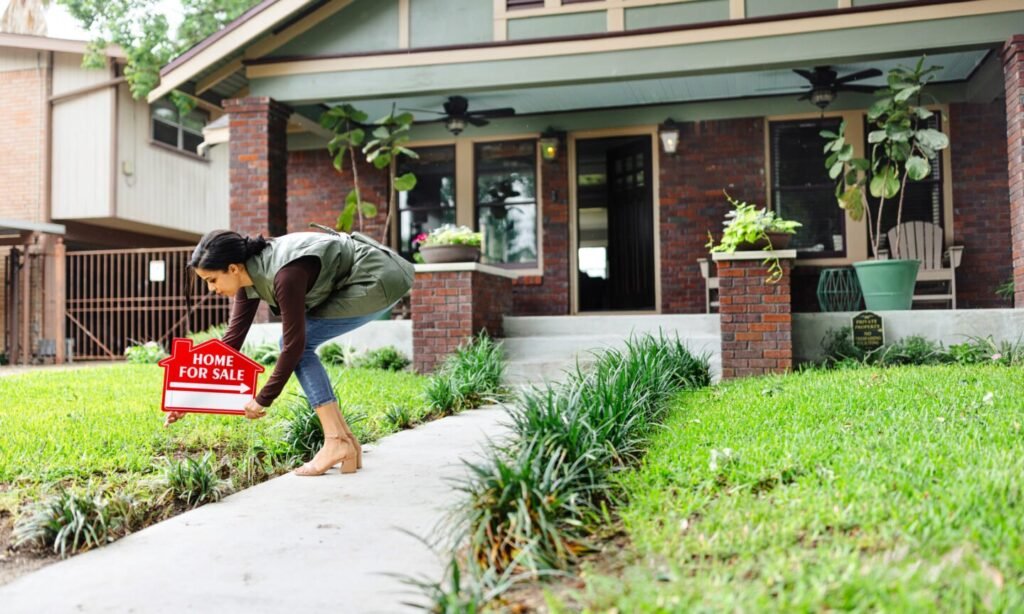It couldn’t have been a worse time for mortgage rates to rise.
The average rate for a 30-year fixed-rate mortgage jumped by 11 basis points to 6.97% in the week ending April 17, as reported by Zillow to BW. A basis point is equivalent to one one-hundredth of a percentage point. This rate marked the highest since the week ending Jan. 16.
An Opportune Time to Sell — Usually
The week of April 13 to 19 typically proves to be the prime time of the year for selling a house. This period tends to offer the most favorable conditions for home sellers compared to any other week in the year, according to Realtor.com’s data analysis.
Buyer interest is usually heightened during this time, with a 17.7% increase in views per online real estate listing compared to an average week, as per the analysis.
However, given the current mortgage rates hovering around 7%, it raises the question of how many of these online viewers will actually proceed to take the next steps, such as touring houses and making offers? More potential home buyers might be inclined to enter the market if mortgage rates were closer to 6% rather than 7%.
(Incidentally, Realtor.com notes that the optimal week for selling varies by market — for instance, March 9 in Denver, May 11 in Birmingham, Alabama — but generally, April is the favored month.)
More Choices, Potentially More Deals
Buyers now have a wider array of properties to select from, with a 30% increase in active real estate listings in the first week of April compared to the previous year, according to Realtor.com. Listings are also staying on the market longer. These current market conditions favor buyers. However, a trend emerges that challenges buyers: escalating mortgage rates, making homes less affordable.
“Furthermore, consumers are expressing concerns about the economy and the rising cost of living, possibly leading them to adopt a ‘wait and see’ approach regarding significant purchases like homes,” stated Kara Ng, senior economist for Zillow Home Loans, in a press release.
Buyers stand to gain when a significant portion of them hesitate. As homes sit longer on the market, the inventory of available properties increases. This surplus provides buyers with more leverage in negotiating prices, resulting in a slower pace of price appreciation.
According to a quarterly survey of housing experts conducted on behalf of Fannie Mae, the average prediction is for home prices to increase by 3.4% in 2025. This forecast represents a decline from the 5.8% price growth seen in 2024.
Possible Delay in Fed Rate Cuts
The upsurge in mortgage rates is attributed to the announced tariff increases, expected to elevate both unemployment and inflation, according to Jerome Powell, chair of the Federal Reserve.
During a speech at the Economic Club of Chicago on Wednesday, Powell hinted that the inflationary impact of tariffs could prompt the Fed to delay, rather than hasten, short-term rate cuts. This bleak outlook, in turn, might keep mortgage rates elevated for a longer duration.

